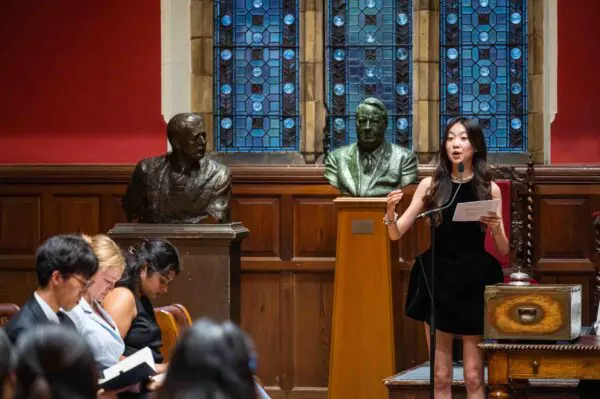
Oxford, United Kingdom
Leadership in Business and Society
When:
10 August - 28 August 2026
Credits:
7.5 EC
Read more
Business & Entrepreneurship
When:
22 July - 09 August 2019
School:
Institution:
Maastricht University
City:
Country:
Language:
English
Credits:
6 EC
Fee:
1000 EUR

This course focuses on recent trends in European Union (EU) trade with the United States in goods and services and in foreign direct investment (FDI). The EU–United States (US) economic relationship accounts for a large share of global trade. They are each other’s main trading partners in goods and services, and together they have the largest bilateral trade relationship in the world. Either the EU or the US is the largest trade and investment partner for almost all other countries in the global economy. The two economies also provide each other with their most important sources of foreign direct investment.
This course provides an analysis of the economic policy concerns and linkages between the US and the EU, evidence of the development and growth of trade, details of transatlantic economic and financial integration, and analysis of convergence and disparities in the economic policy positions with respect to a variety of global economic issues. Focus will be on trade and competition theory, measurement, and the analysis of policymaking illustrated through detailed studies of national, supranational, and international cooperative efforts in financial systems and economic development, and competition and trade policies.
The objective of the course is to introduce students to the relationships, regulatory framework, and current economic climate impacting business operations across the transatlantic region. We will examine how transatlantic relations covering financial services regulations can be expected to affect international financial institutions and operation both within the Eurozone and the City of London in light of Brexit. Global financial markets require increased EU‐US regulatory cooperation on constructing and implementing regulatory reforms.
The course will include a field trip to Brussels. We expect to arrange visits at the European Commission and the United States Mission to the European Union.This course consists of 32 class hours divided over 3 weeks. Students earn 6 ECTS credits when they obtain a passing grade. The course is suited for students studying business, international relations, political economy or economics and political science.
D.L. Cleeton
None. A minimum of 10 students is required for the class to take place.
The primary objective of this course is to introduce the students to the global economy and to obtain a basic understanding of the major issues involved therein. The applied focus will be interrelationships across the US and EU economies. In particular, this course has the following specific objectives:
To give students the knowledge and understanding of the unique aspects involved in doing business internationally on a business, legal and political level.
To give students a basic understanding of the global monetary system and the evolution of the system.
To give students a basic understanding of international trade
To increase an awareness and understanding of the different international institutions involved in international business including: BIS, IMF, OECD, World Bank, and the WTO.
To understand strategies used by businesses in the international market on a competitive basis and the rules governing global competition policies.
To learn and apply skills learned in class to current on-going issues involved in today’s world, including the monetary issues in Europe, financial reforms in the EU, trade agreements and the underlying political economy of policy making.
To understand the issues involved in entering foreign markets, global production and outsourcing as well as logistics and supply chain issues.
To understand the issues involved in developing economies and the business and political issues surrounding the business and market dynamics.
Most importantly, the students will create a general awareness of global business issues that will allow them deeper insights and allow them to keep on top of issues that may affect them as individuals and as part of a larger entity.
Fee
1000 EUR, This 3-week course costs €1000,-.
When:
22 July - 09 August 2019
School:
Institution:
Maastricht University
Language:
English
Credits:
6 EC

Oxford, United Kingdom
When:
10 August - 28 August 2026
Credits:
7.5 EC
Read more

Osnabrück, Germany
When:
09 July - 31 July 2026
Credits:
5 EC
Read more

Maastricht, Netherlands
When:
13 June - 27 June 2026
Credits:
12 EC
Read more